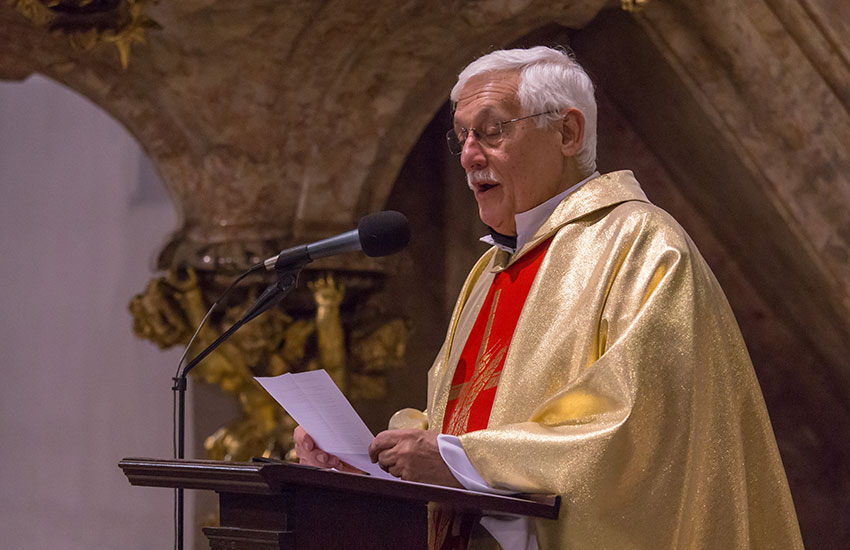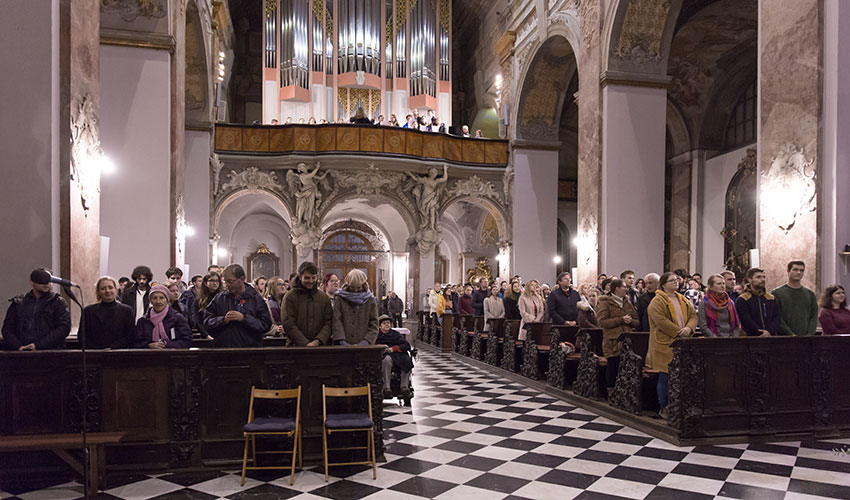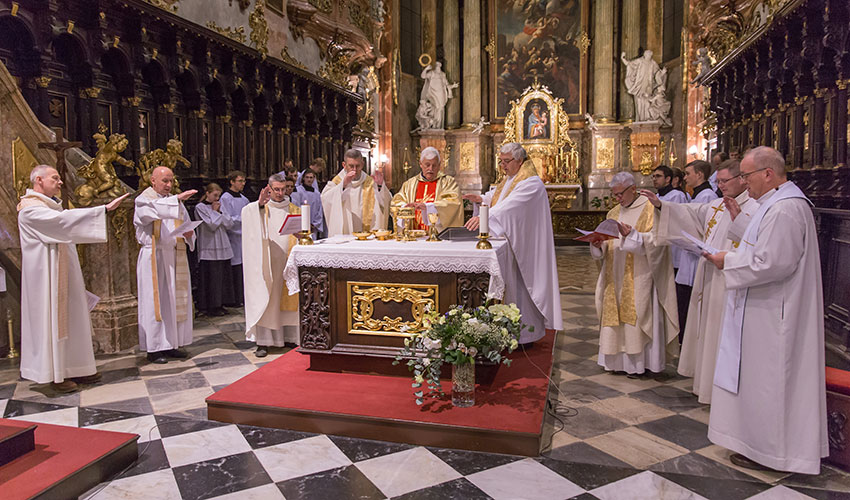St Agnes of Bohemia chose the poor over royal courts
During his visit to the Bohemia Province on 13 November, Father General celebrated the Eucharist at Brno’s Jesuit church - a vibrant hub for the youth of the Catholic University Movement. The occasion coincided with the feast of Bohemia’s patron saint, St Agnes, canonized by John Paul II in 1989. Rejecting royal proposals, St Agnes, daughter of King Ottokar, embraced a life dedicated to religion and caring for the poor. Declining Emperor Frederick II’s proposal, she founded a monastery in Prague, embodying a life of humility inspired by St Clare of Assisi.

Here is Fr Arturo Sosa’s homily on the Gospel of the day,
the “Parable of the Last Judgement” (Mt 25:31-46).
I am delighted that this meeting of ours today falls on the memory of St Agnes of Bohemia one of your patron saints. As a royal daughter, she could have hoped for an important place in any of the comfortable and wealthy European courts. However, she chose a life completely dedicated to God in poverty, and chose as her friend Saint Clare, with whom she shared a profound correspondence that lasted nearly twenty years.
Although she lived almost eight centuries ago, her choice of a life dedicated to God is very relevant today. Indeed, for St Agnes, choosing God meant paying great attention to the least, the poorest, the excluded. Both the example of St Agnes and today’s Gospel can help us to understand what an authentic choice of God, a choice of Jesus, is all about, even in our time.

Jesus separates those who do not serve him from those who do. Only the latter become heirs of his kingdom. Very often we Christians talk about the necessity of choosing God, of acknowledging Jesus as our Lord. This distinction between believers in God and non-believers is perfectly understandable to us and can give us a sense of security. However, you have surely noticed that in today’s gospel, which depicts the scene of the final judgement, the criterion for separating people who are pleasing to God from those who have little to do with Him is by no means a declaration of faith or a way of believing. It is all about simple acts of human compassion, simple gestures of accompanying others in need:
“I was hungry and you gave me food, I was thirsty and you gave me drink, I was a stranger (today we would say a refugee) and you welcomed me...”
It
seems that the basic criterion of what we commonly call the final judgement is
sensitivity to the needs of the least, the needy, the excluded. It is in this
that God’s choice is decided.

Interestingly, both groups of people are puzzled by this criterion, for they ask: when did we see you hungry, thirsty... and so on. Those who have not given bread or a glass of water to the needy are puzzled because, after all, if they had known they were dealing with Jesus, as good Christians they certainly would not have left him without help. Their tragedy is precisely that they have reduced faith and God to the context of religious declarations, where it is known that faith is involved. Meanwhile, the choice of God is in fact the choice of a human being, the one not necessarily attractive, the one right next to us. God is best chosen when he is completely unrecognisable. But it is precisely when one recognises the greatest poverty, the greatest exclusion, and tries to combat them, that this makes one pleasing to God and similar to him.
The acts of charity with which St Agnes has been remembered for generations were performed by her towards all those in need, regardless of their background, beliefs and way of thinking. It is not uncommon to complain that, today, faith is confined to the private sphere. However, if our choice of God is a gesture of reaching out to the needy people around us, our faith will not be limited by anything; it will be a clear testimony in the social arena.
May our faith, like that of St Agnes, empower us to truly choose God and to become in his image and likeness, and thus be legible witnesses of his love in the world.
[Photos by František Ingr - Člověk a víra Association]







